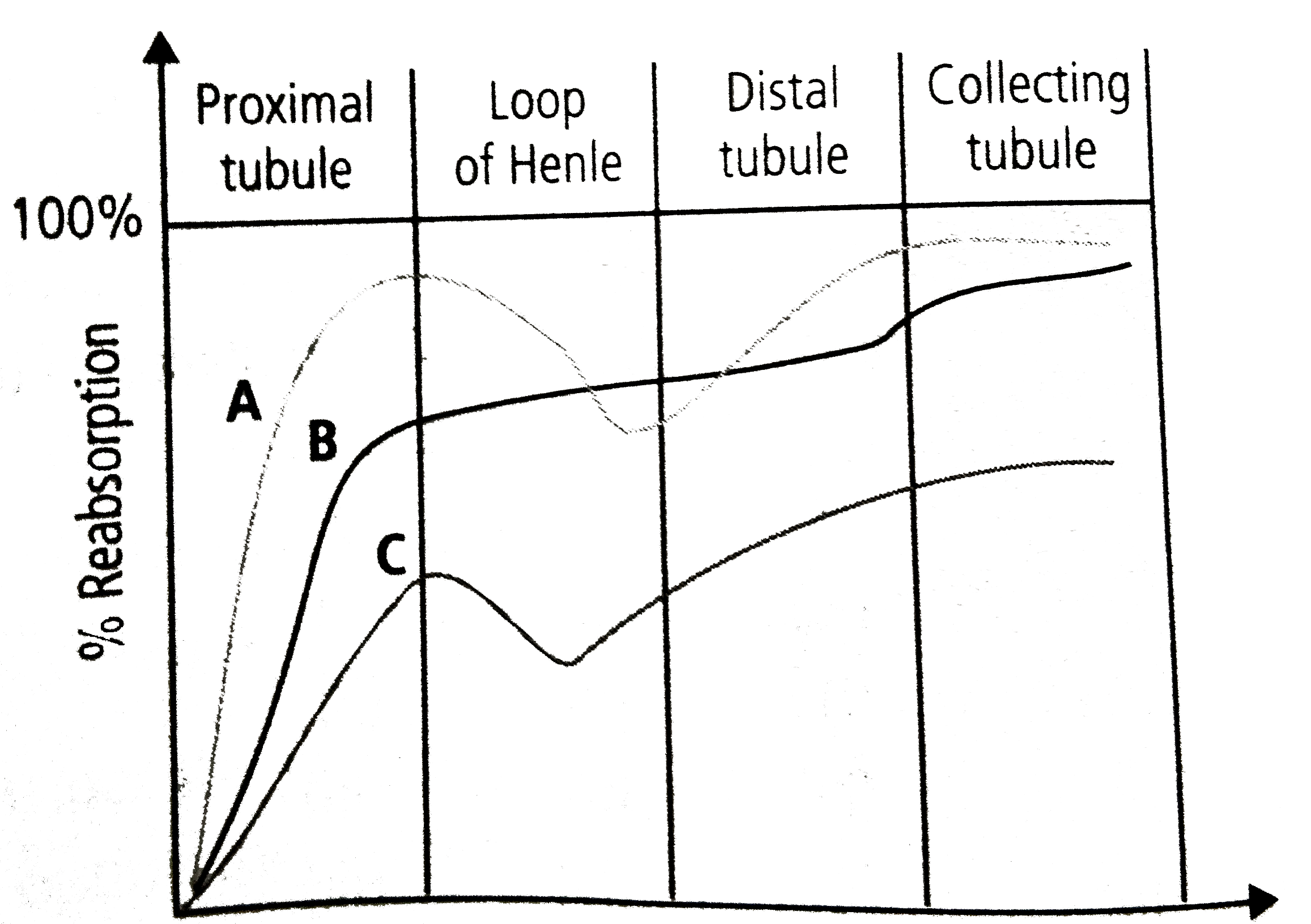Which regulates reabsorption of salts from Glomerular filtrate ?
Oxytocin
Vasopressin
Glucocorticoids
Mineralocorticoids
The correct Answer is:4
To answer the question "Which regulates reabsorption of salts from glomerular filtrate?" we will analyze the options provided and determine which hormone is responsible for this function.
1. Understanding the Question: We need to identify which hormone regulates the reabsorption of salts from the glomerular filtrate in the kidneys.
2. Analyzing the Options:
- Option A: Oxytocin: This hormone is primarily involved in childbirth and lactation. It does not play a role in the reabsorption of salts from the glomerular filtrate. Therefore, this option is incorrect.
- Option B: Vasopressin (Antidiuretic Hormone): Vasopressin is responsible for increasing water reabsorption in the kidneys, not salt reabsorption. Since the question specifically asks about salts, this option is also incorrect.
- Option C: Glucocorticoids: These hormones are mainly involved in the body's response to stress and inflammation. They do not directly regulate the reabsorption of salts from the glomerular filtrate. Thus, this option is incorrect.
- Option D: Mineralocorticoids: This is the correct answer. Mineralocorticoids, such as aldosterone, are produced by the adrenal glands and play a crucial role in regulating sodium and potassium levels in the body. Aldosterone specifically increases the reabsorption of sodium ions in the kidneys, which helps to regulate blood volume and blood pressure.
3. Conclusion: Based on the analysis, the hormone that regulates the reabsorption of salts from glomerular filtrate is Mineralocorticoids.
Final Answer: Mineralocorticoids
---
- Option A: Oxytocin: This hormone is primarily involved in childbirth and lactation. It does not play a role in the reabsorption of salts from the glomerular filtrate. Therefore, this option is incorrect.
- Option B: Vasopressin (Antidiuretic Hormone): Vasopressin is responsible for increasing water reabsorption in the kidneys, not salt reabsorption. Since the question specifically asks about salts, this option is also incorrect.
- Option C: Glucocorticoids: These hormones are mainly involved in the body's response to stress and inflammation. They do not directly regulate the reabsorption of salts from the glomerular filtrate. Thus, this option is incorrect.
- Option D: Mineralocorticoids: This is the correct answer. Mineralocorticoids, such as aldosterone, are produced by the adrenal glands and play a crucial role in regulating sodium and potassium levels in the body. Aldosterone specifically increases the reabsorption of sodium ions in the kidneys, which helps to regulate blood volume and blood pressure.
Topper's Solved these Questions
- HUMAN PHYSIOLOGY -IBOOK - ALLENCHAPTER - HUMAN PHYSIOLOGY -IEXERCISE - BEGINNERS BOX-5
13 Videos
- HUMAN PHYSIOLOGY -IBOOK - ALLENCHAPTER - HUMAN PHYSIOLOGY -IEXERCISE - BEGINNERS BOX-6
13 Videos
- HUMAN PHYSIOLOGY -IBOOK - ALLENCHAPTER - HUMAN PHYSIOLOGY -IEXERCISE - BEGINNERS BOX-3
10 Videos
- HUMAN HEALTH AND DISEASEBOOK - ALLENCHAPTER - HUMAN HEALTH AND DISEASEEXERCISE - Question
116 Videos
- HUMAN REPRODUCTION BOOK - ALLENCHAPTER - HUMAN REPRODUCTION EXERCISE - Question
92 Videos
Similar Questions
Knowledge Check
Glomerular filtrate is
Ablood plasmaBproteinised plasmaCdeproteinisded plasmaDurine stored in urinary bladderThe reabsorption of the sodium from glomerular filtrate is regulated by the hormone
AglucagonBsecretinCaldosteroneDadrenaline.Glomerular filtrate contains
Ablood without blood cells and proteinsBblood with proteins but without cellsCplasma without sugarsDblood without urea
The reabsorption of glucose from the glomerular filtrate is due to
View SolutionGlomerular filtrate contains
View SolutionWhere does the selective reabsorption of glomerular filtrate take place?
View SolutionWhere does the selective reabsorption of glomerular filtrate take place?
View Solution
The accompanying figure shows reabsorption of some constituents of glomerular filtrate in different parts of mammalian nephron. What can these constituents be?
View Solution
